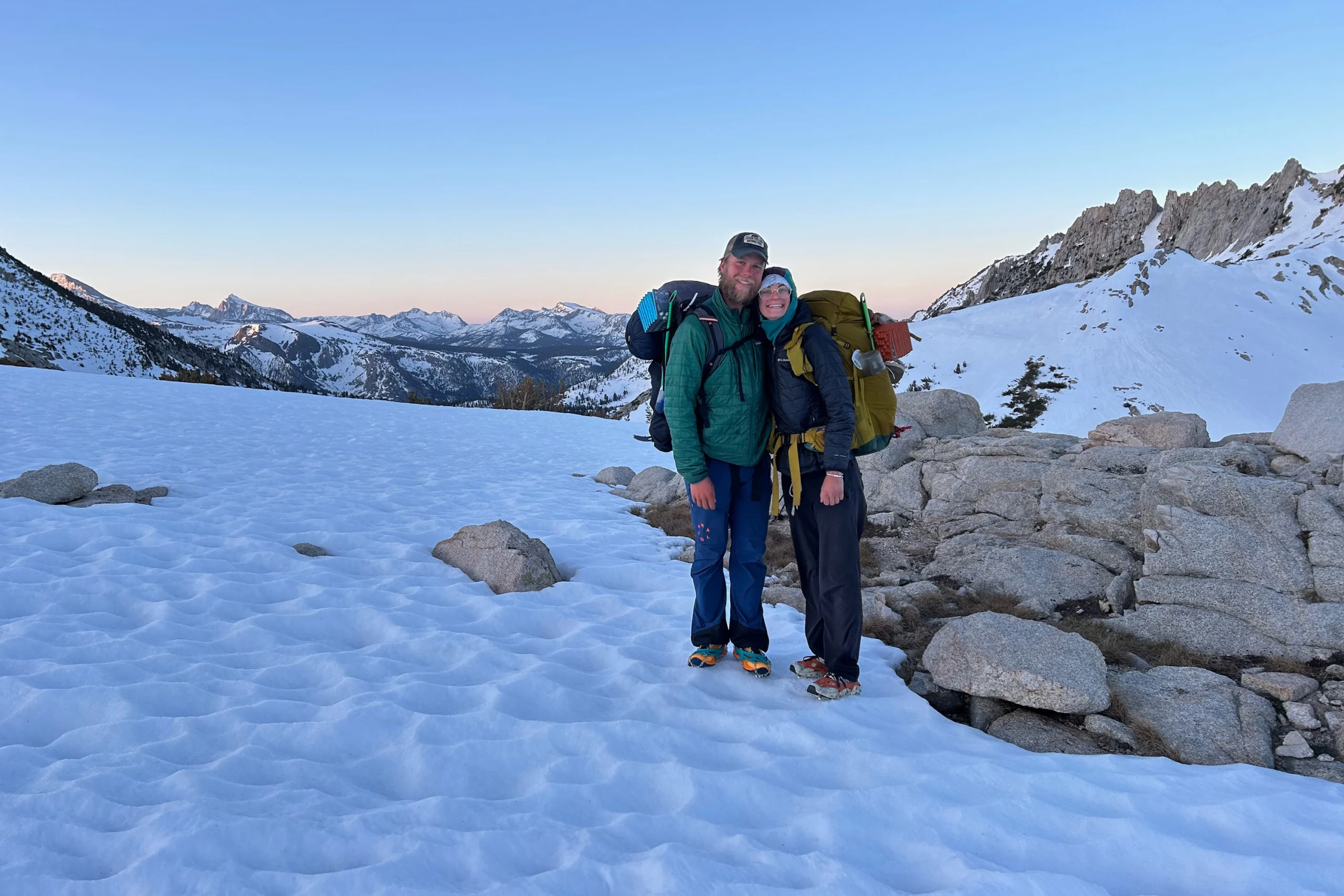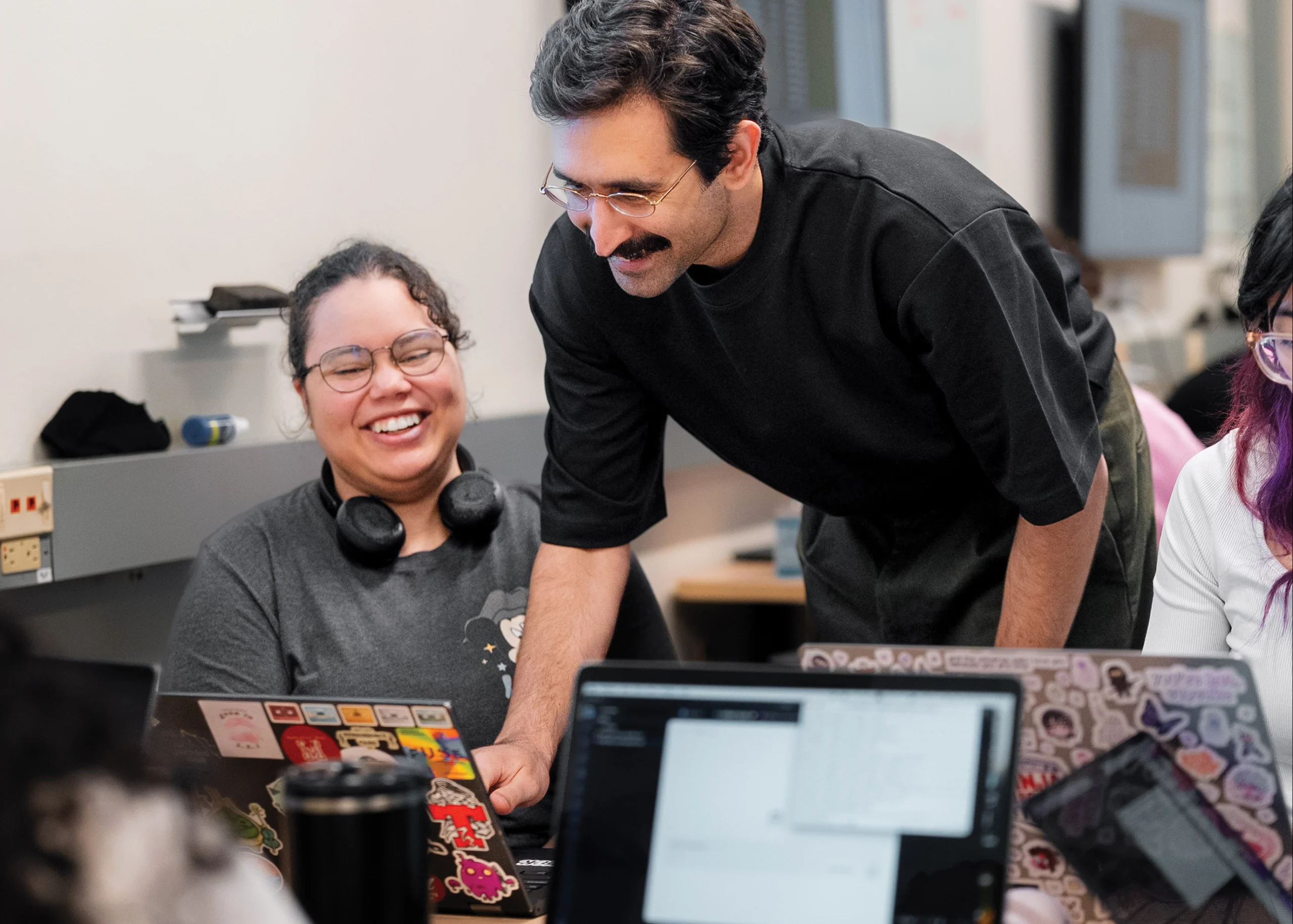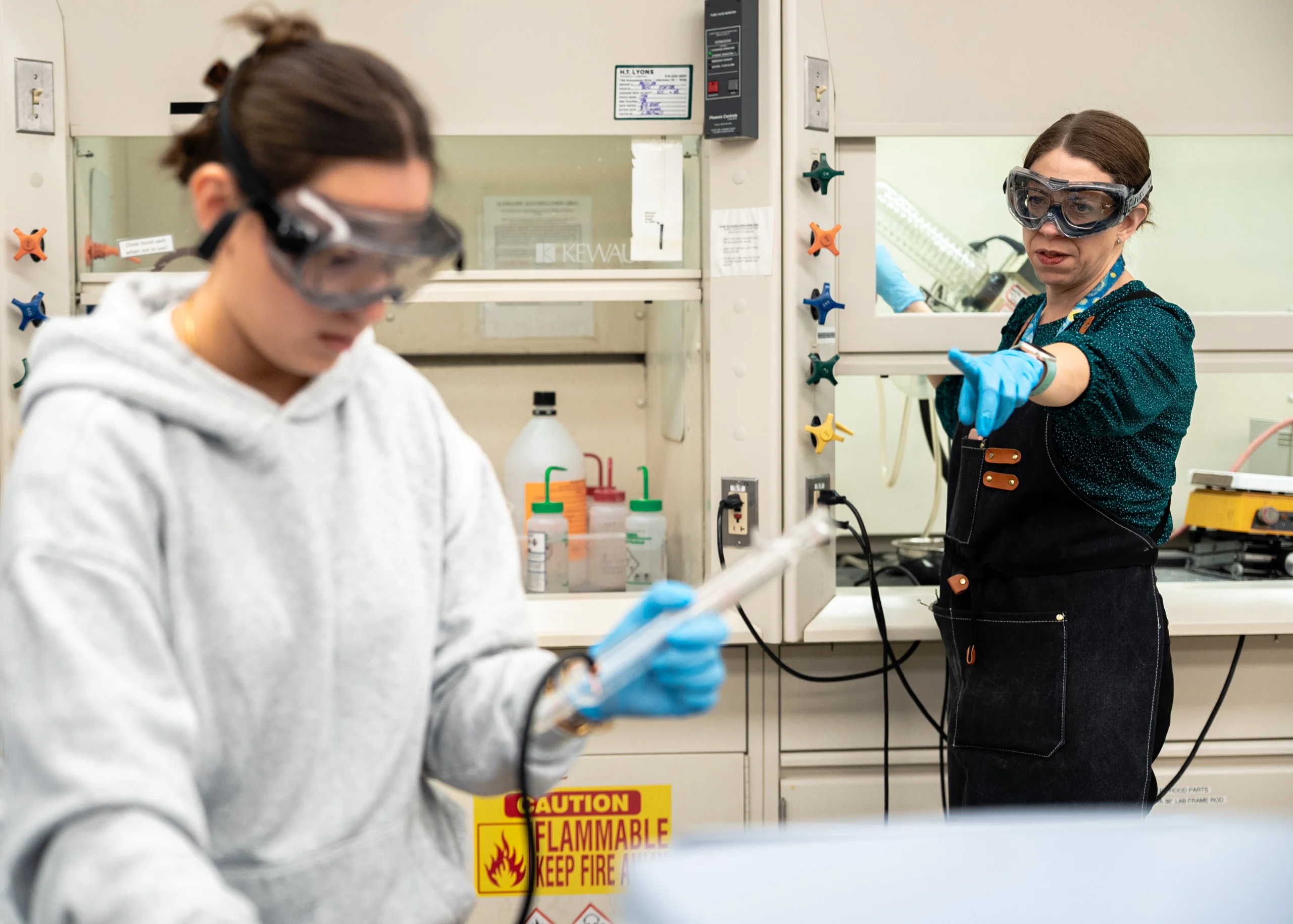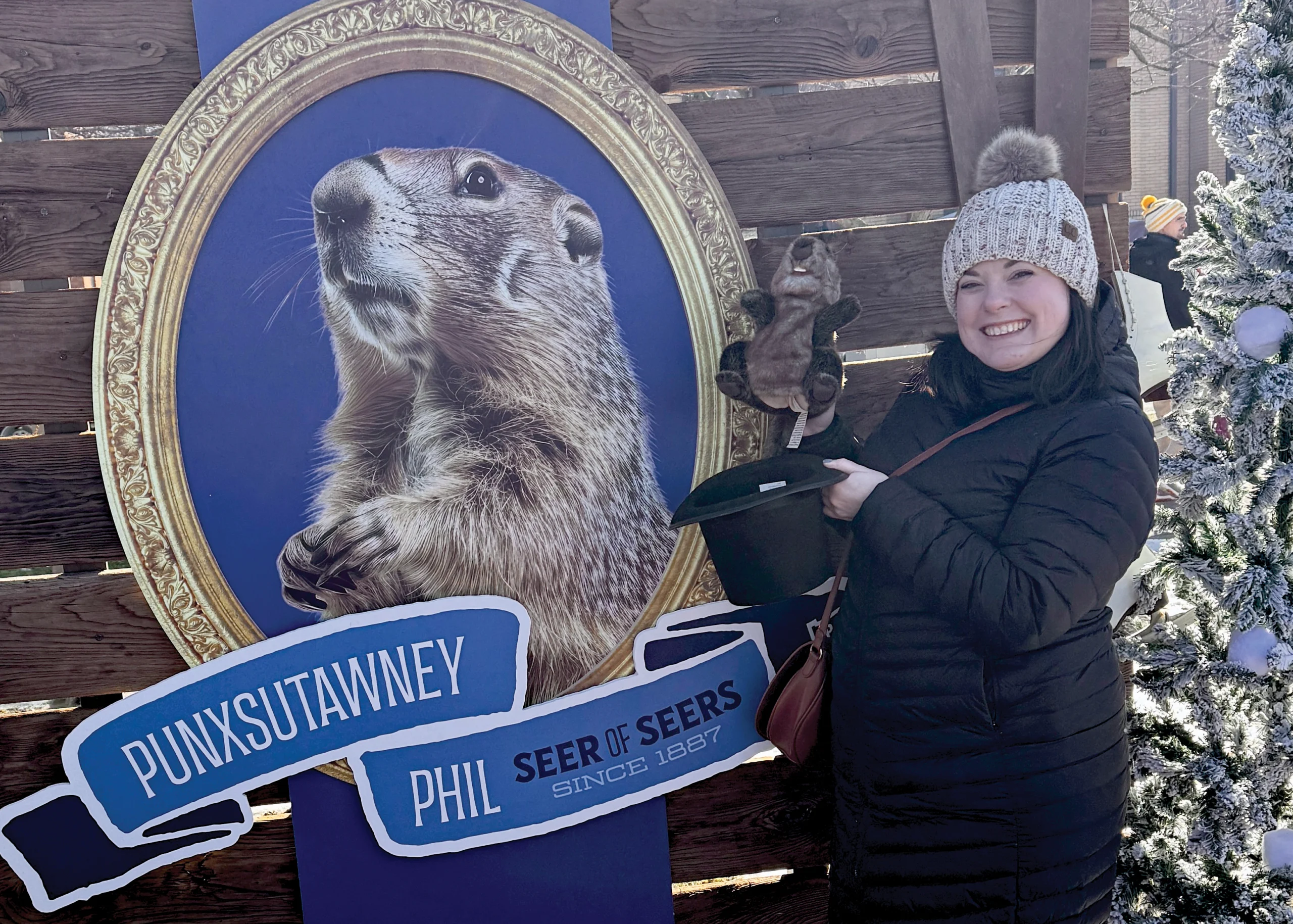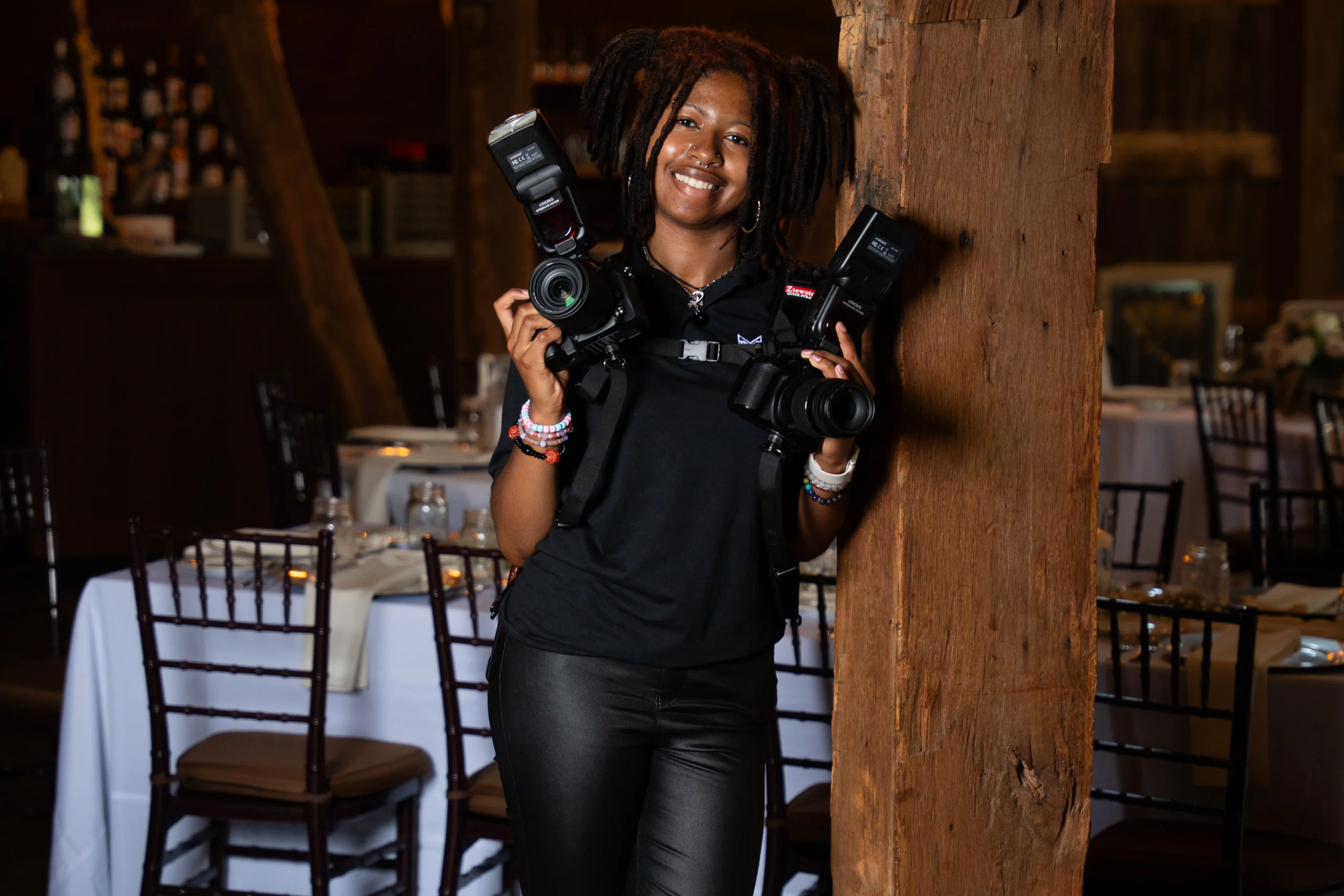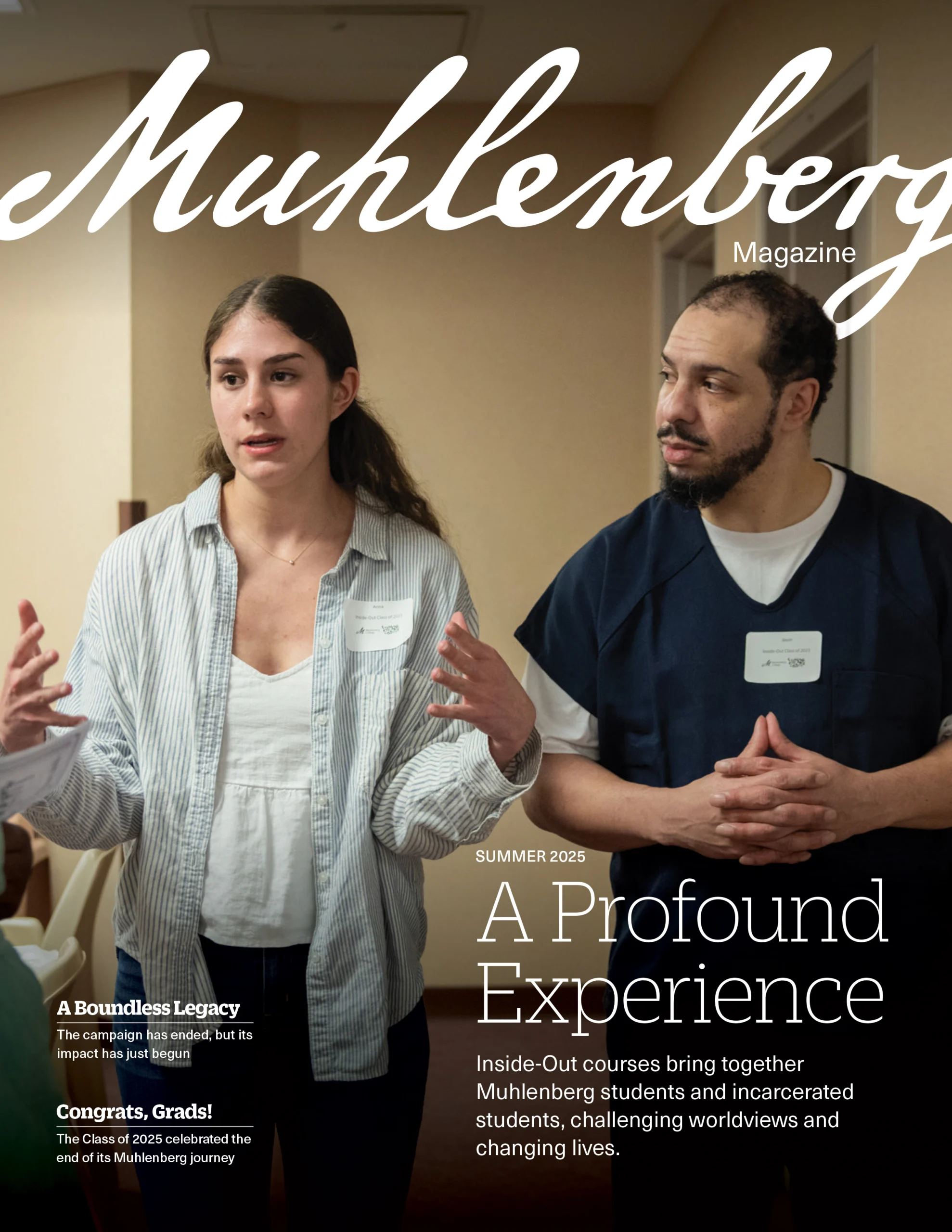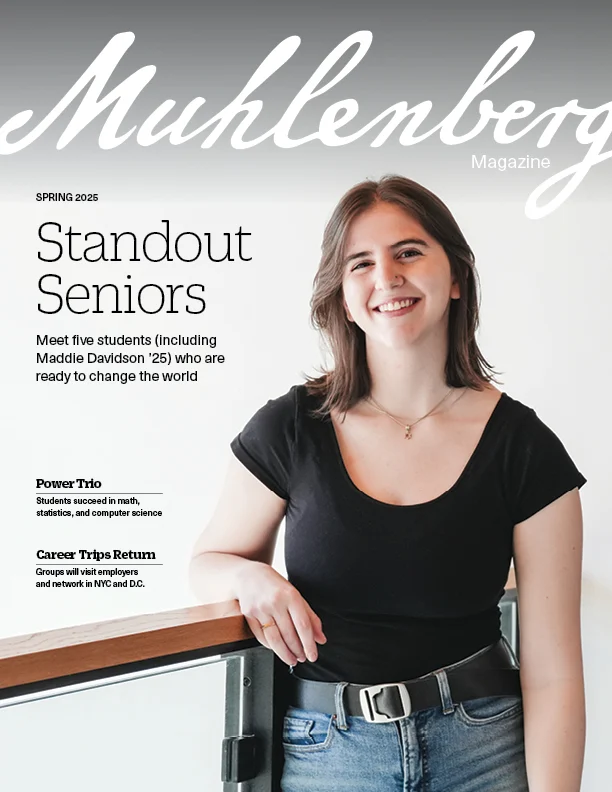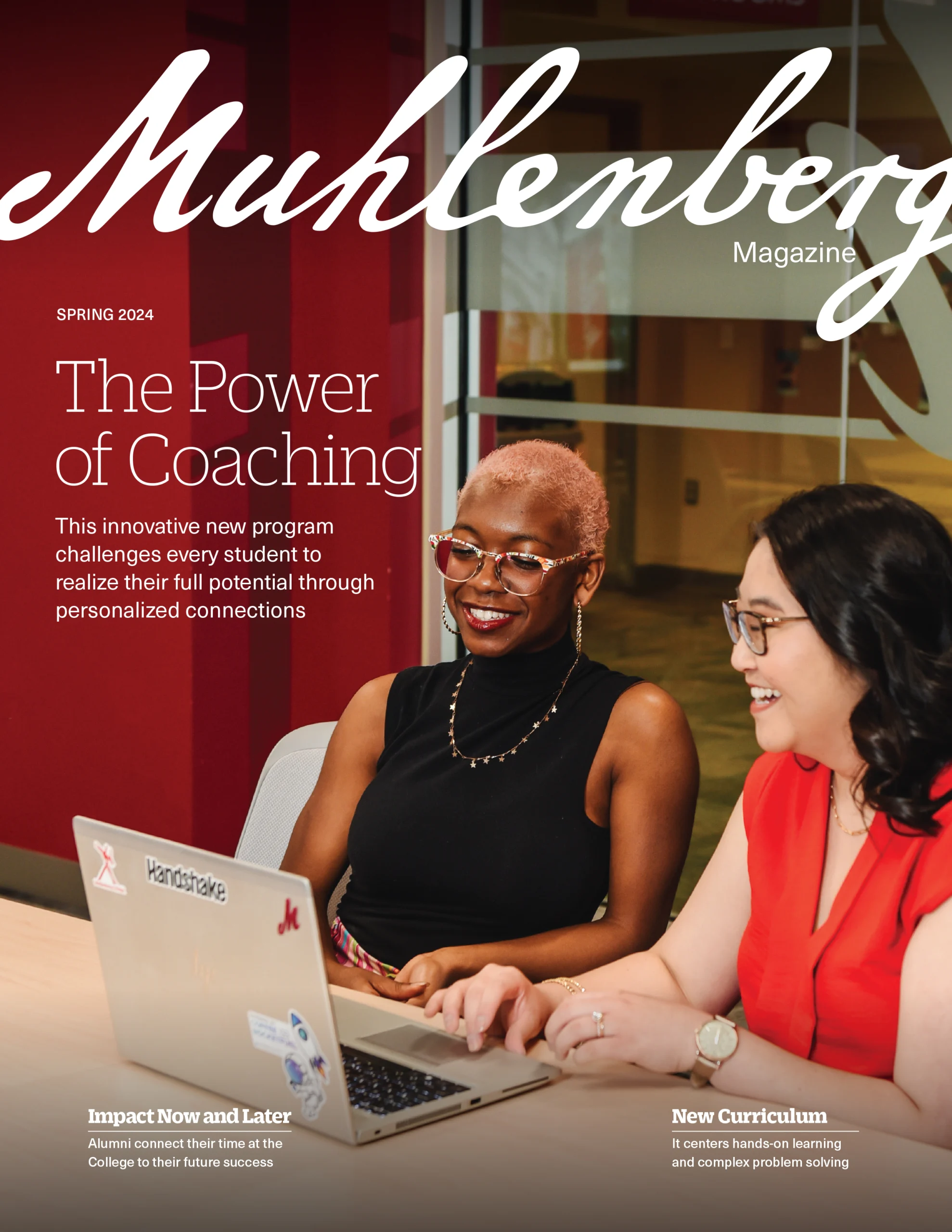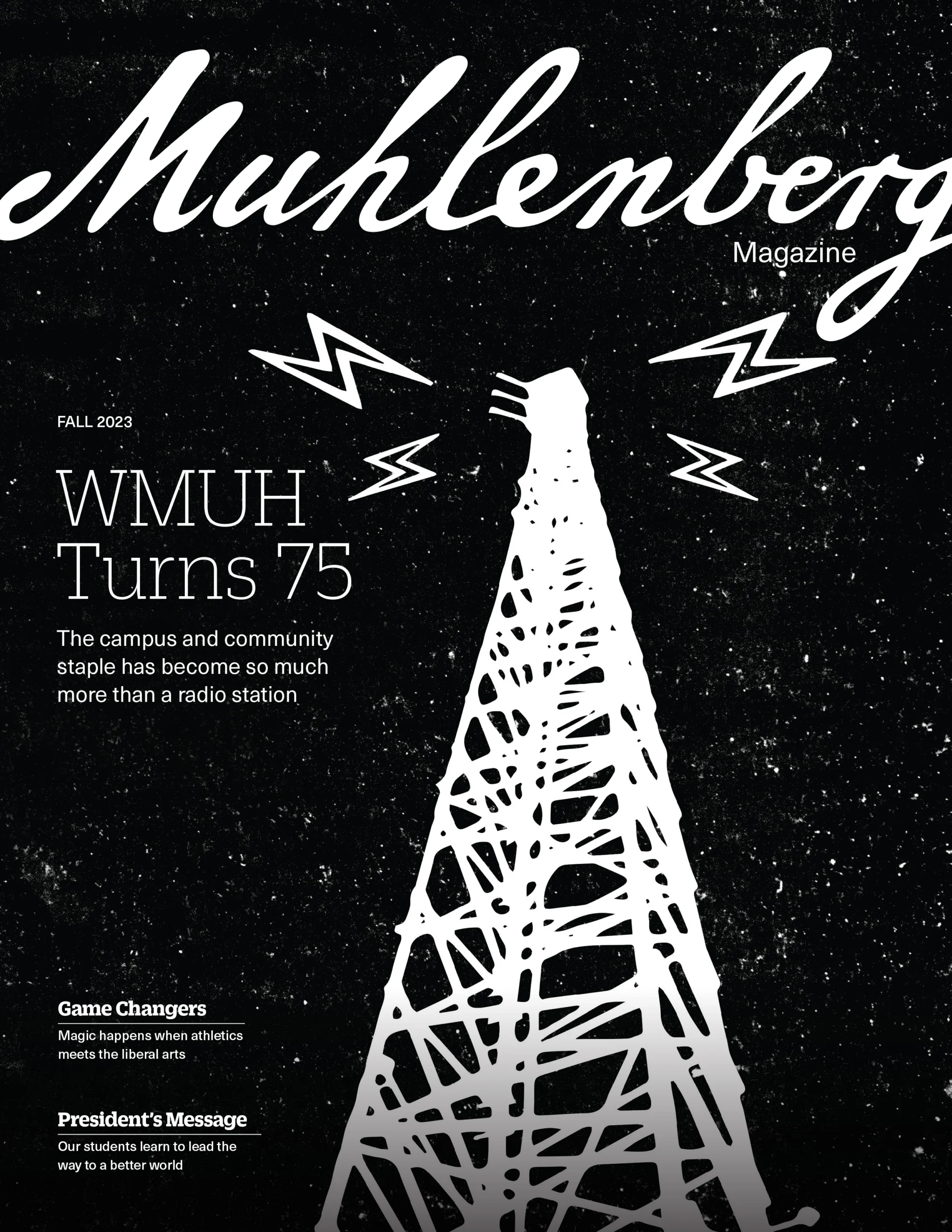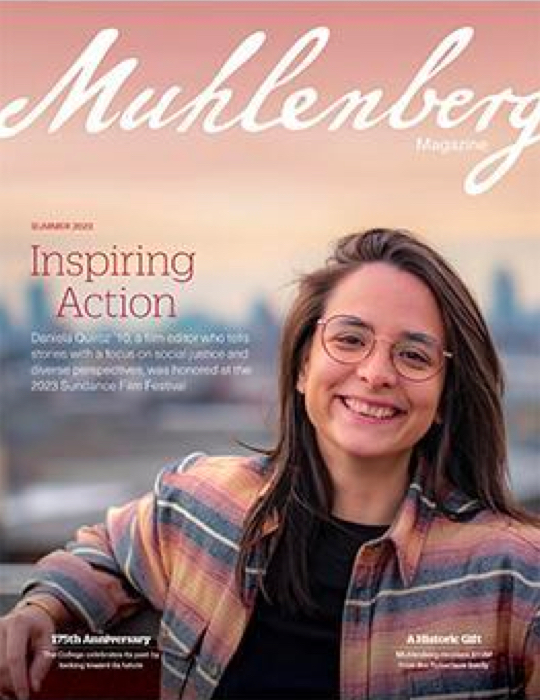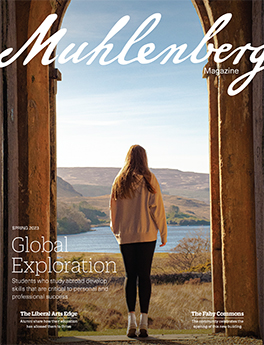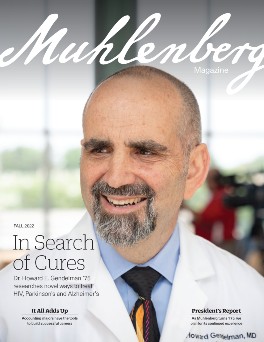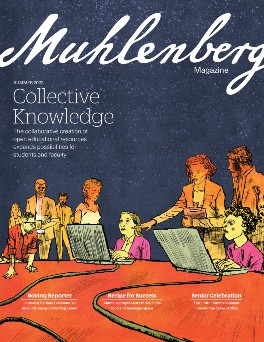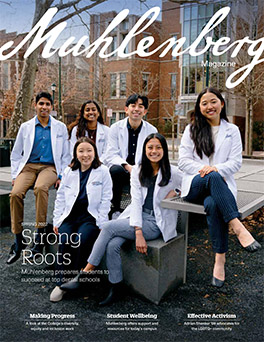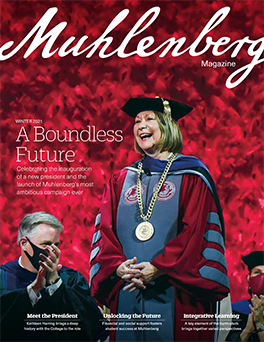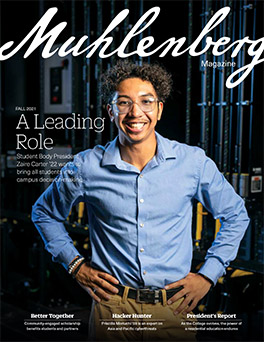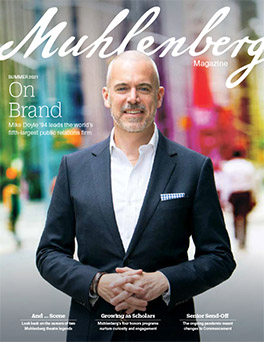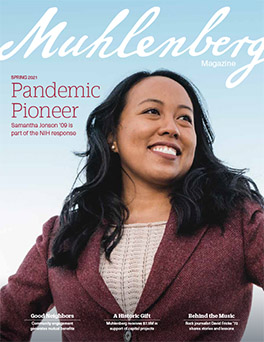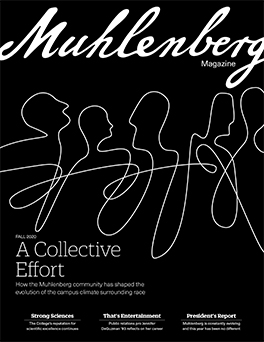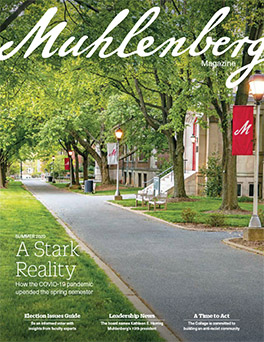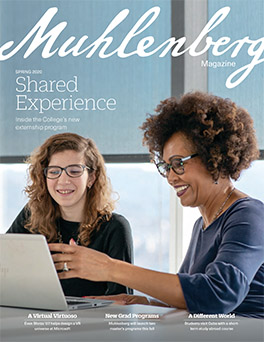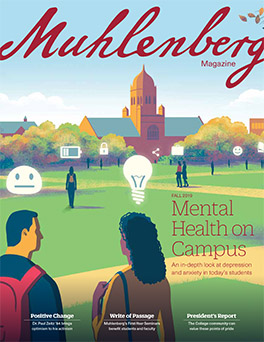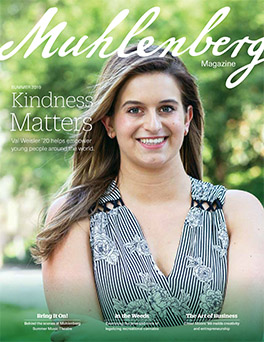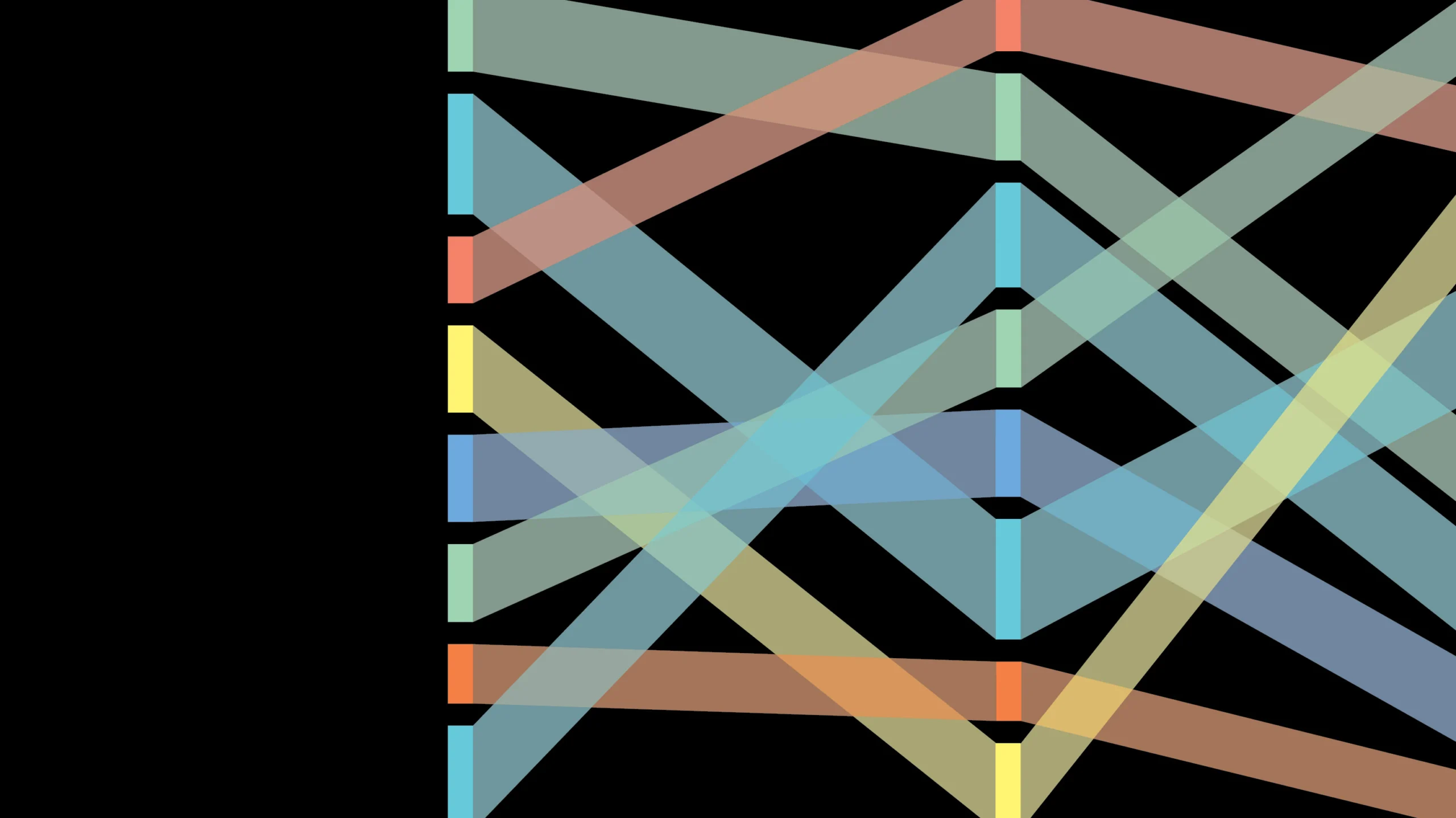
This Is the Liberal Arts
At Muhlenberg, each student is exposed to a variety of ideas, ways of thinking and academic disciplines, regardless of what they end up declaring as a major. These stories demonstrate the power and potential of such an education.
One of the promises of a liberal arts education is that it allows for exploration and well-roundedness. Each student will be exposed to a variety of ideas, ways of thinking and academic disciplines, regardless of what they end up declaring as a major.
How this translates into powerful outcomes is different for each student. Some will come to Muhlenberg unsure of what they want to study and discover a passion that sets their future trajectory. Others will be committed to a certain path — prehealth or prelaw, perhaps, or one within the arts — but will find a second, perhaps very different, field that interests them as much as (or more than) the first.
“At Muhlenberg, the opportunities to engage in this self-discovery process are truly boundless. From conducting research alongside our remarkable faculty to pursuing internships, studying abroad, leading a student organization or serving our broader community, students will gain the experiences they need to apply their knowledge to action,” says President Kathleen Harring. “The deeply interconnected liberal arts education we provide prepares our students to be the thoughtful, nimble and innovative problem solvers our world needs — to make their impact.”
What success looks like is as individual as each student’s experience of the liberal arts. The seven stories that follow are just a small sampling of the tens of thousands of examples of the transformative power of a Muhlenberg education.
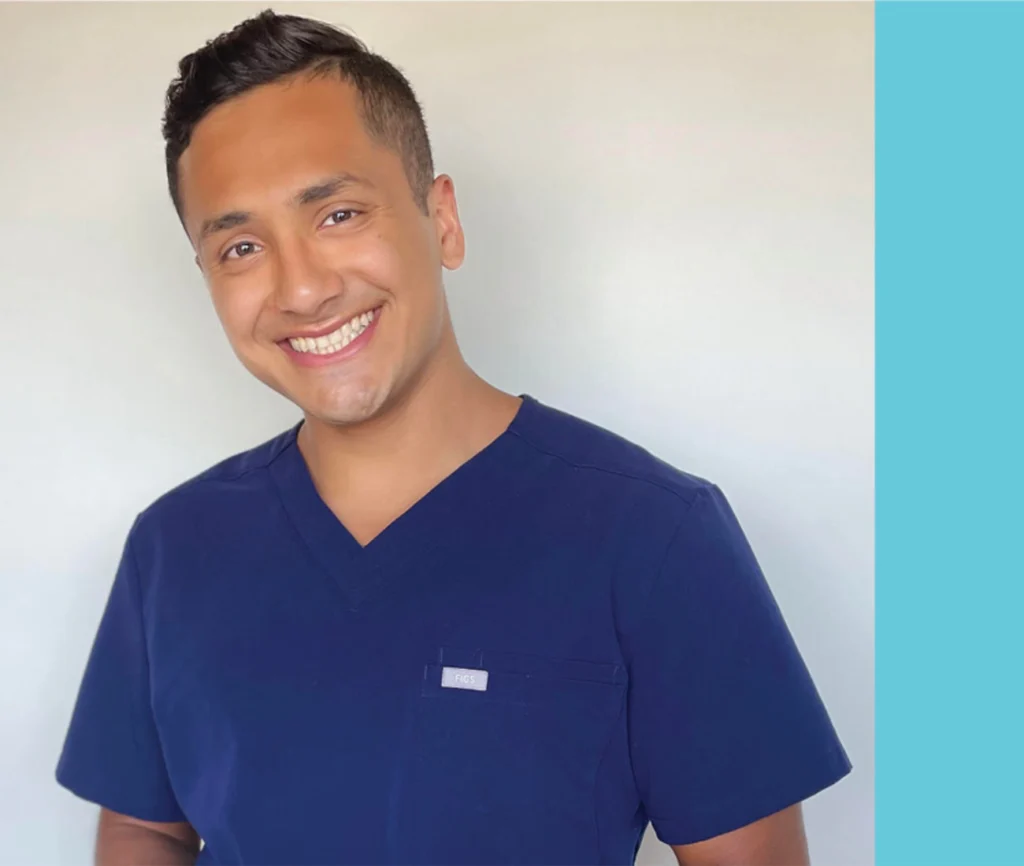
Kash Calderón ’19
“When you talk about your own failures, people feel comfortable talking about their own failures and feel motivated to learn and grow from those failures.”
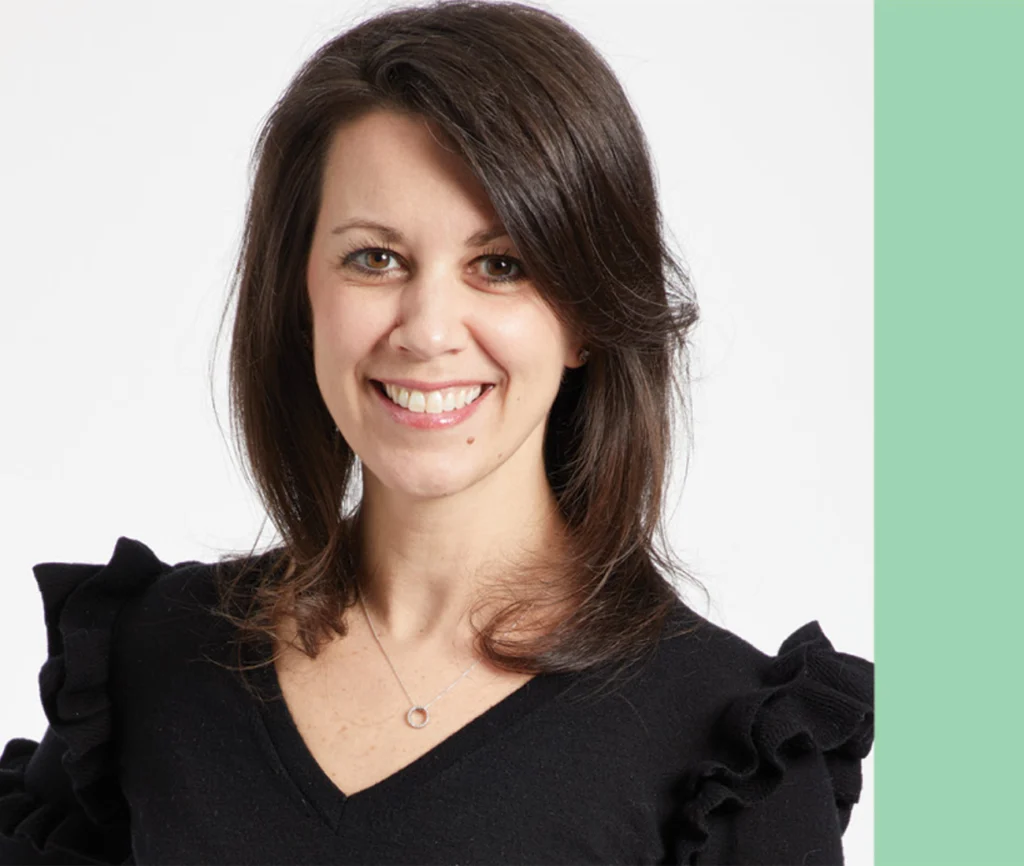
Kristina Stefanelli McMahon ’96
“How I prepare for things, how I study for things, how I present my best work … all of those skills, I learned at Muhlenberg, and I didn’t even know I was learning them at the time.”
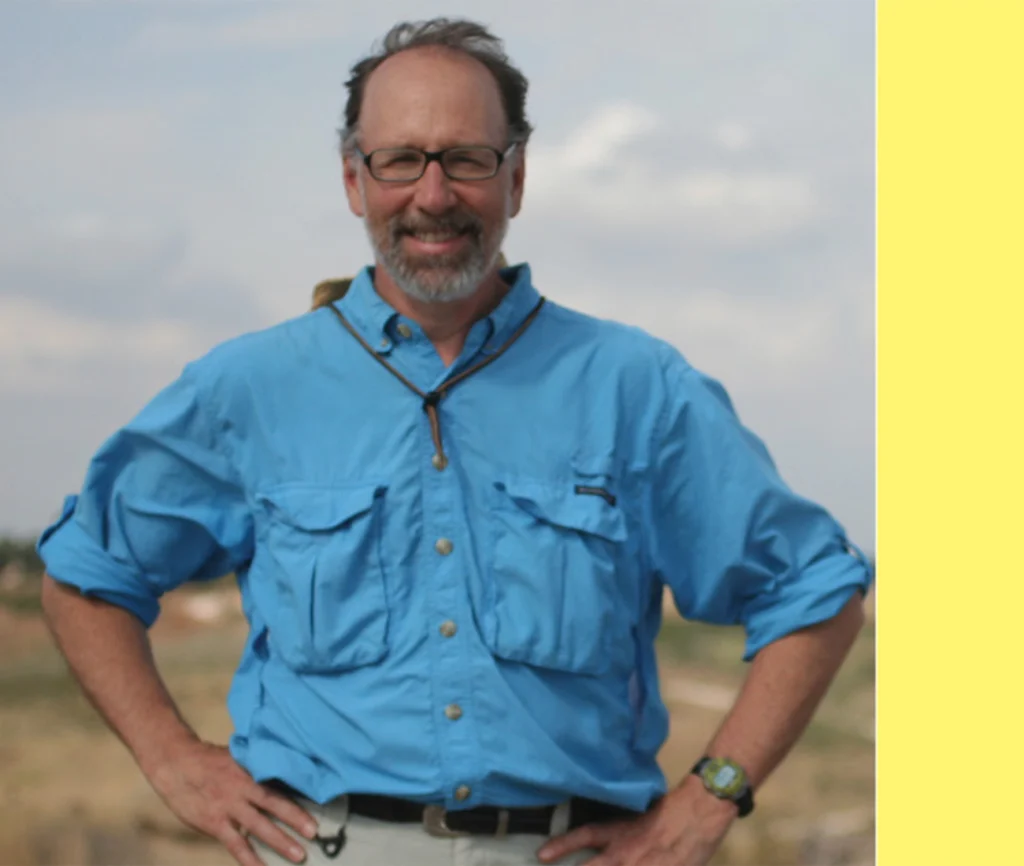
George Wheeler ’72
“[Art] influences the people around you into being receptive to different ways of thinking, different ways of doing things. That’s what the liberal arts does.”
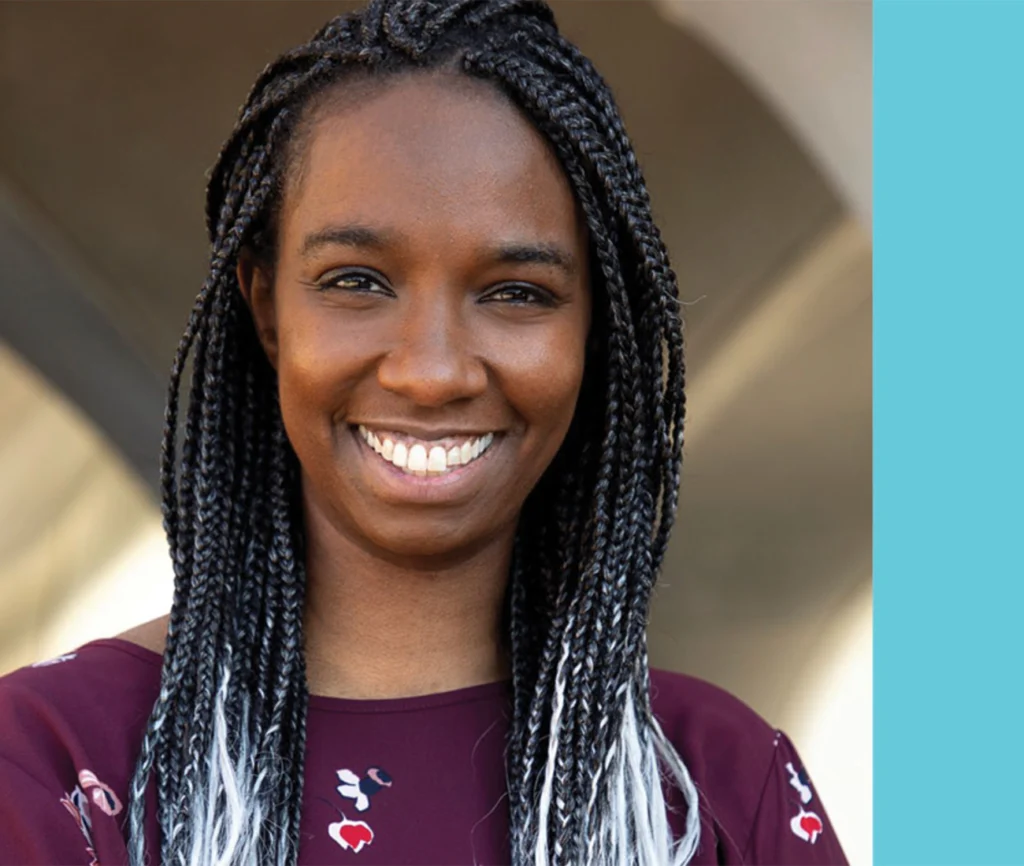
Dani Barlow ’13
“Being able to explore classes in theatre and business, having that flexibility, allowed me to start to explore what business looked like in theatre while I was in school.”
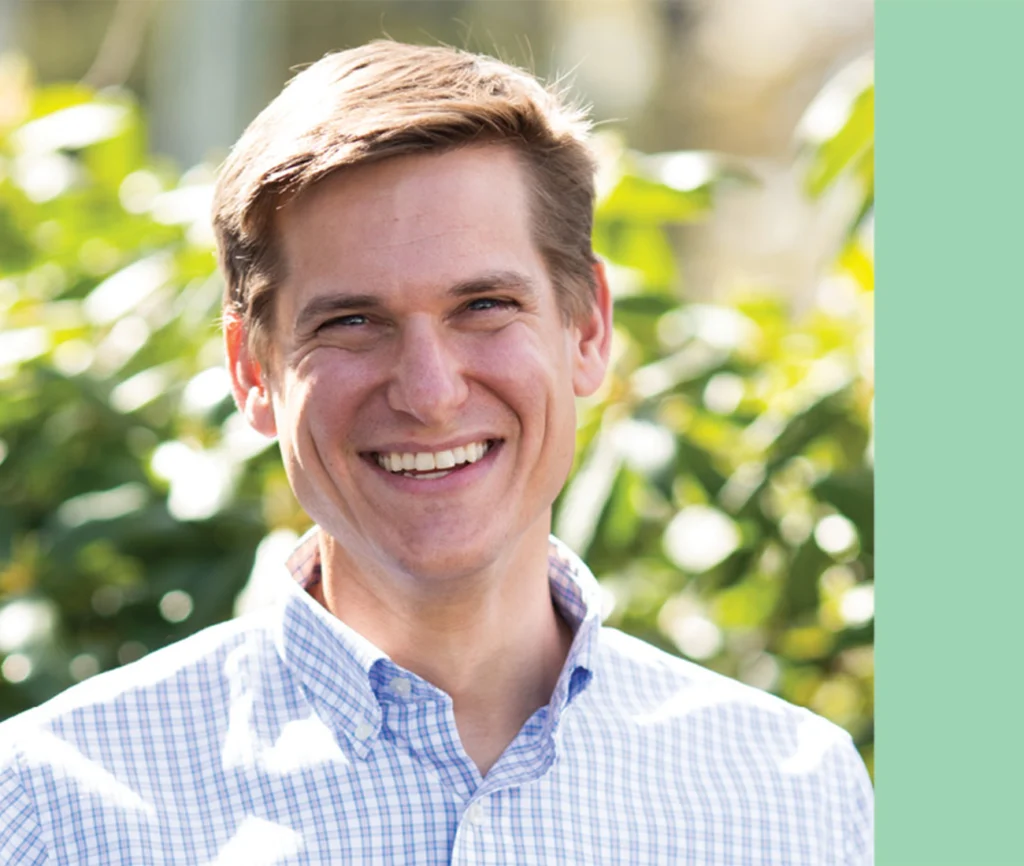
Dr. Bob Tarby ’06
“You think about a lab report and it’s similar to how you think about writing an English paper … That process of thinking critically and analytically is not that different.”
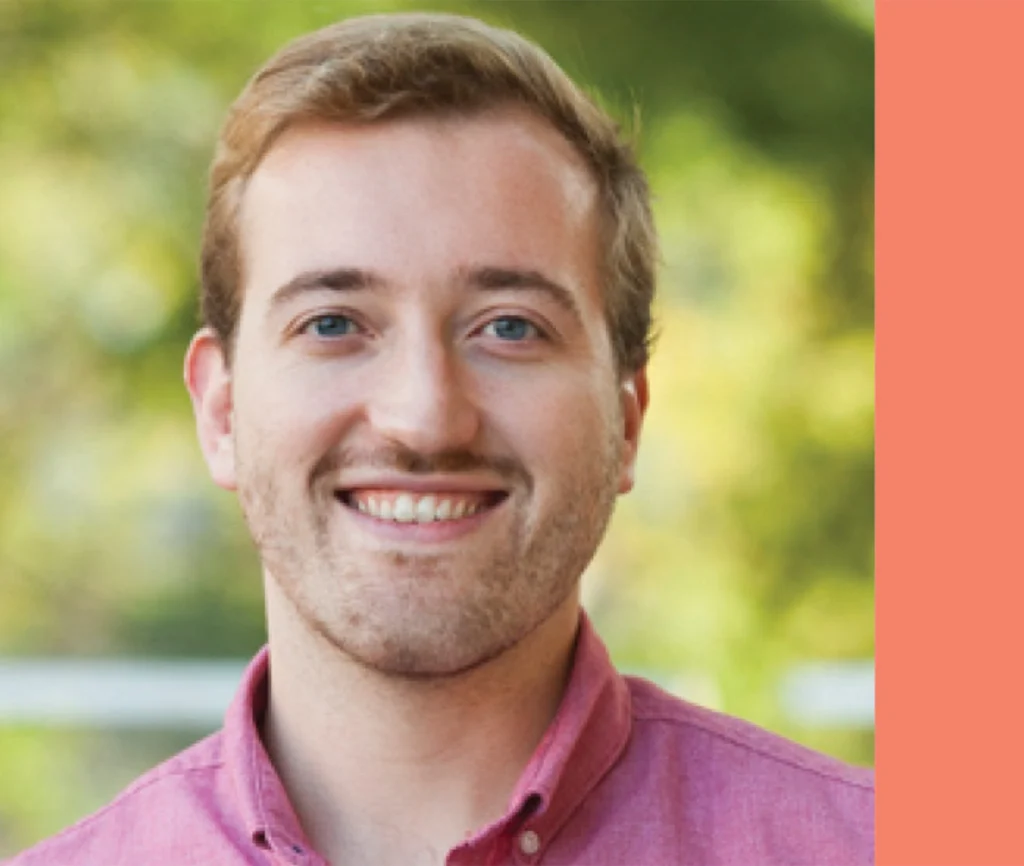
John Bennett ’15
“There were all these different kinds of classes that explored lots of different art forms from lots of different cultural vantage points over lots of different periods of history that I was fortunate enough to sop up at Muhlenberg.”
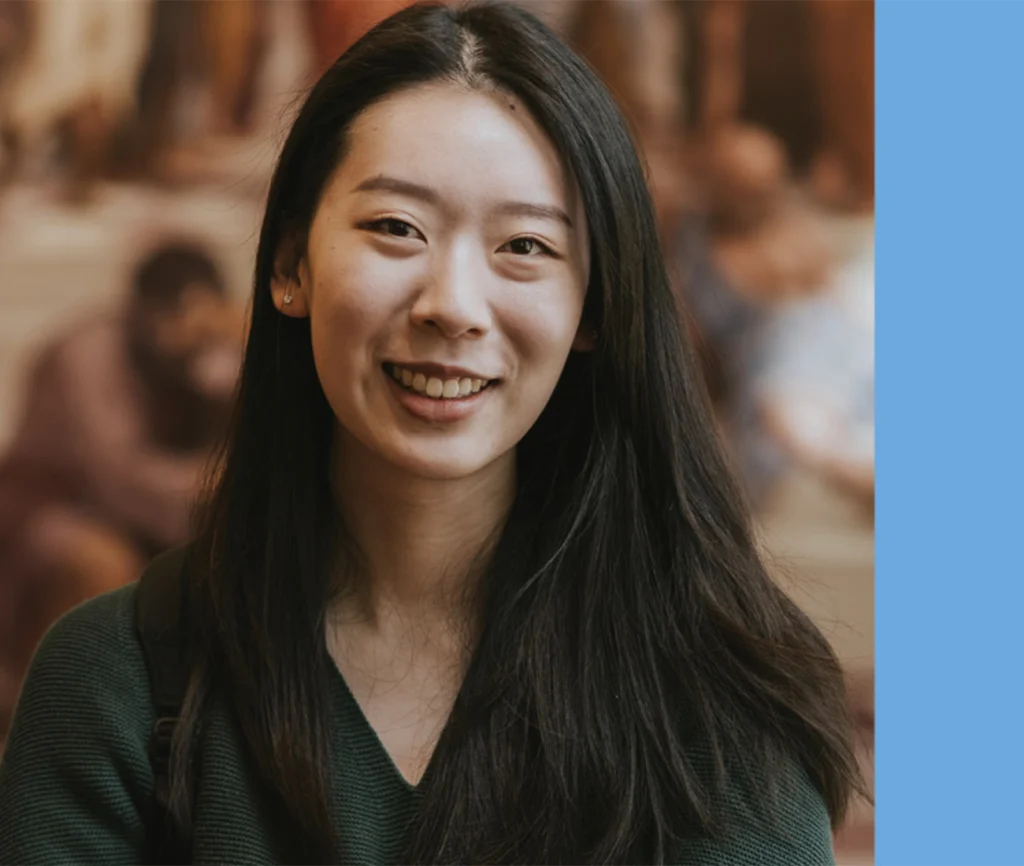
Shu Tang ’23
“I learned that, to be able to bring positive and sustainable change to the world, we really need interdisciplinary information and knowledge.”

